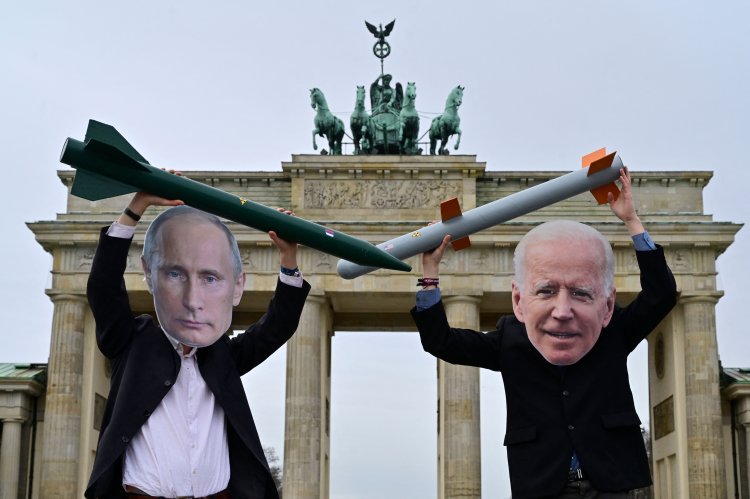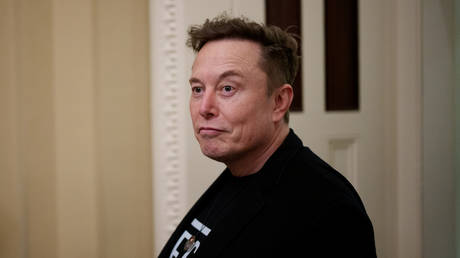Europe Should Develop Its Own Nuclear Arsenal -- Editorial
With America taking a step back from its commitment to defend Europe, it's crucial for Europeans to overcome their reluctance regarding nuclear weapons.

For Europeans who still count on U.S. support, these messages serve as a significant wake-up call. Does this seem like a global superpower prepared to deploy American troops or nuclear weapons in response to a Russian assault on a NATO ally? As uncertainty grows over whether the U.S. remains committed to its Article 5 obligations under the NATO alliance, security experts are increasingly warning that the U.S. might not be willing to assist Europe anymore. German security expert Carlo Masala of Bundeswehr University has urged NATO to brace for the possibility of a Russian invasion of the Baltics, with 2029 being highlighted as a potentially critical year. In a more immediate forecast, René Obermann, chair of Airbus’ supervisory board, suggests that an attack on NATO’s eastern flank could occur even sooner.
If Washington were to genuinely forgo its role as the world's enforcer, Europe would face considerable challenges in countering Russian President Vladimir Putin's military actions, especially in the near term. Many European nations, Germany in particular, have underinvested in their military capabilities in recent decades. While Russia has transitioned to a war economy, parts of Europe remain in a slumber, grappling with the idea of a peaceful existence. Military analysts contend that it would take over four years to build an arsenal of conventional weapons sufficient to deter a Russian invasion. Although most experts do not see a Russian attack on Germany as likely, it cannot be entirely ruled out.
This is precisely why Germany and Europe must establish their own nuclear deterrent to effectively deter Russia.
Germany has historically hesitated to develop its own nuclear arsenals, largely due to its 20th-century militaristic past. However, the full-scale Russian invasion of Ukraine has made it clear that the threat of a Russian attack on Europe is no longer abstract. There is an urgent need to enhance defensive capabilities swiftly. The current dialogue among top leaders has shifted from whether Germany should arm itself to what form that military capability will take.
Nuclear weapons should be integral to this rearmament process, providing both time and cost efficiency. The effectiveness of nuclear deterrence is well-documented from the Cold War era and its doctrine of mutually assured destruction. For decades, neither the U.S. nor Russia engaged in nuclear conflict, knowing that each would retaliate with devastating consequences. The principle remains that whoever strikes first faces severe repercussions.
Today, this deterrent strategy is similarly effective for Israel, known as the “Samson Option.” This military doctrine draws inspiration from the biblical figure Samson, who destroyed his enemies in the face of certain death. Israel reportedly stands ready to utilize its nuclear arsenal if an existential threat materializes, even at the risk of igniting a nuclear conflict. While Israel has never confirmed its nuclear capabilities, this approach appears to work — as seen in its dealings with Iran.
For Germany, creating a domestically controlled nuclear arsenal is not a feasible route, given its previous legal commitments against nuclear arms in 1975 under the Nuclear Non-Proliferation Treaty and in 1990 under the Two Plus Four Agreement, which allowed for its reunification. Nevertheless, talks are underway about Germany engaging with France’s nuclear arsenal through collaborative control mechanisms.
However, relying solely on French nuclear capabilities poses its own risks, especially with figures like Marine Le Pen, a known sympathizer of Russia, potentially ascending to the French presidency. A more comprehensive European strategy that incorporates the U.K.’s nuclear assets — and perhaps Poland's status as a front-line state — is a far wiser approach.
Complex questions need to be tackled, such as who would command authority over Europe’s nuclear arsenal. It is hard to imagine any French leader willingly sharing control over decisions relevant to nuclear strikes. Yet, this vital discussion cannot be overlooked simply because easy answers are elusive. There must be no taboos.
Recently, Wolfgang Ischinger, chair of the Munich Security Conference Foundation Council, proposed an unconventional but thought-provoking idea in *Die Welt* — suggesting the stationing of French nuclear arms, either temporarily or permanently, in Germany or Poland. This could operate under a model similar to Germany’s existing nuclear sharing arrangement with the U.S., allowing partner nations to deploy these weapons using compatible aircraft.
Incoming German Chancellor Friedrich Merz has exhibited strategic courage and vision by indicating openness to such ideas after discussions with French President Emmanuel Macron. If Merz can convince his coalition partners and allies in Paris, London, and Warsaw of the necessity for shared European nuclear capabilities, he could build on the legacy of European integration established by prominent leaders like Konrad Adenauer and Helmut Kohl. This presents an opportunity to develop a new European defense union, one which does not rely on the United States for nuclear deterrence.
Ultimately, Europe must become capable of defending itself. Leaders from Germany, France, the U.K., and Poland could establish a direct hotline to coordinate the shared nuclear arsenal, provided it isn’t set up over Signal.
Scott R Wilson for TROIB News












